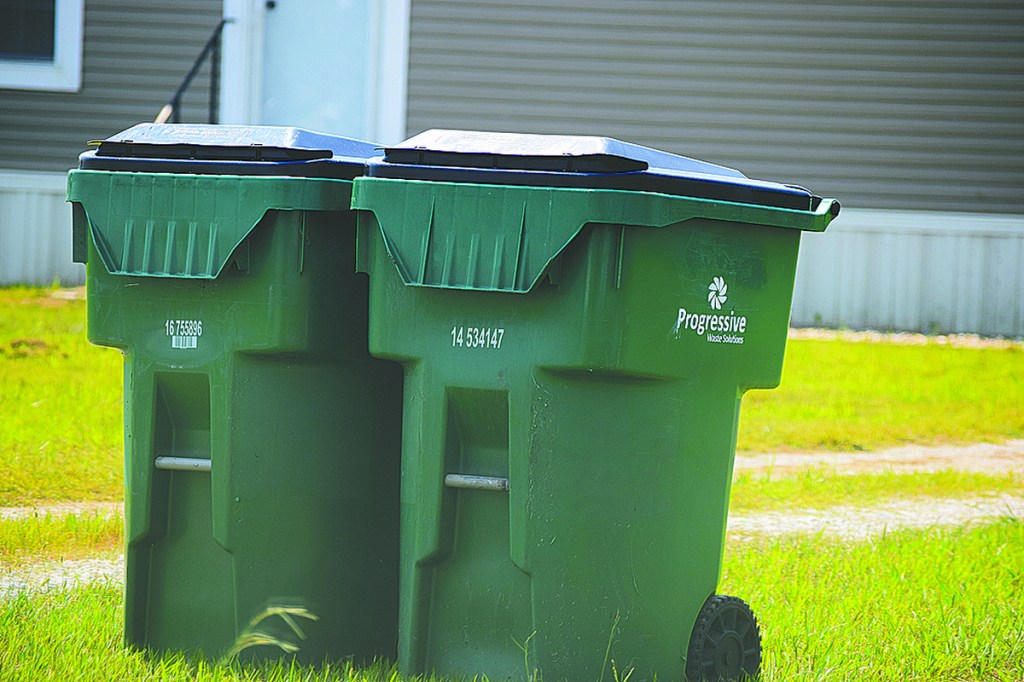Lawsuit filed regarding the halting of garbage service to mobile homes
Published 6:00 am Sunday, September 10, 2017

- Progressive Waste garbage can are pulled to the front at a local trailer park. Mobile home operators will have to have a garbage service provider independent of Iberia Parish starting Oct. 1, but a lawsuit just filed is contesting the constitutionality of the new law.
A lawsuit filed in the 16th Judicial District Court is contesting Iberia Parish Government’s recent decision to stop providing garbage services for residents living in mobile homes.
Trending
The ordinance was created by IPG earlier this year, and is slated to go into effect Oct. 1. In effect, the law classifies mobile home parks as commercial businesses, which forces mobile home operators to become responsible for the cost of trash collection.
It would require any future developer to have their property rezoned before being able to establish a mobile home park and would also reinforce existing law that requires mobile home park operators to have an occupational license and submit to annual inspections of the property.
Before the law was passed, those living in mobile home parks would have trash taken care of through the parish, via a sales tax. When the new policy goes into effect, mobile home operators will have to establish independent garbage contracts with waste providers.
The lawsuit was submitted by Rodney Leger, Kenneth Gove, U.S. Gary, Ron Guidry, Lynnette Guidry, Brooke Mulkey and Prentice Mulkey, who are being represented by the law firm Landry, Repaske, Watkins & Breaux of New Iberia.
The petition argues that mobile home residents are Iberia Parish citizens who by definition are not commercial establishments, and are tax paying citizens. The mobile home residents pay the parish’s dedicated half-cent sales tax for trash and garbage pickup for the purpose of trash pickup, and are entitled to those services.
Furthermore, the suit provided evidence of a letter from a mobile park owner showing that the cost of a garbage contract would raise the rent for tenants.
Trending
“Trailer park owners have notified the petitioners, via written notice, that effective October 1st, 2017, additional charges will be added to their rent to cover the costs of any trash/garbage pickup charges that will be incurred by the park owners due to the new ordinance.”
According to the suit, the ordinance denies the residents their right to equal protection under the United States Constitution and the Constitution of the State of Louisiana. It also claims the ordinance is discriminatory. The lawsuit states the ordinance does not apply to residents of wood frame homes located in the same mobile home parks involved in the lawsuit, and it also does not apply to trailer parks with fewer than three mobile homes.
In addition, the lawsuit states that the law also doesn’t apply to individuals living in rental houses or duplexes, as well as residents in single family homes.
The suit compares the parish’s law with a similar one enacted by the City of New Iberia, which it argues does not have a discriminatory collection policy and provides for trash pickup for all residents regardless of whether they live in trailer parks.
“The classification of residents of mobile home parks living in mobile homes clearly singles out for differential treatment members of a group characterized by some unpopular trait or affiliation, which in this case are mobile home residents in Iberia Parish, and the Defendant cannot and will not be able to prove that the legislation bears a necessary relationship to a compelling parish interest,” according to the suit.
The plaintiffs are asking for an injunction from the court so that the new law will be stalled until the lawsuit is resolved. During that time, the parish would be ordered to provide trash and garbage pickup without additional costs to the plaintiffs.
Several local residents expressed their disapproval with the new measure earlier this year in March, when about 60 residents met to discuss options to repeal the ordinance before Iberia Parish President Larry Richard actually signed it into law.


